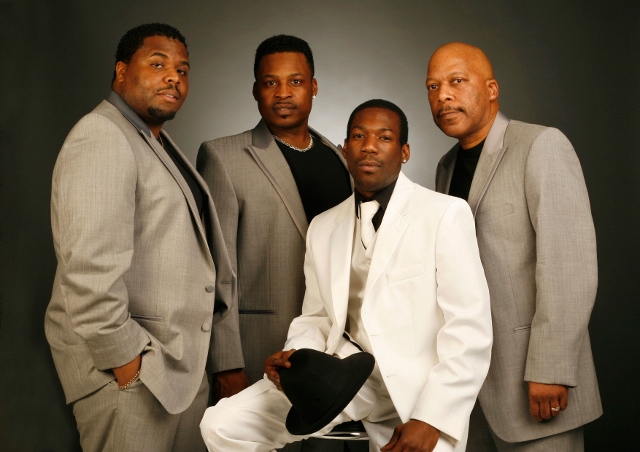Earlier this month the Hallé opened its 155th season. It would be reasonable to expect that the orchestra, one of the undoubted cultural crown jewels of Manchester, wanted to start things off with a bang, so to speak. But the double bill of Britten and Shostakovich was no mere bang, rather a veritable artillery barrage of artistic power, individual precision and collective glory.
The evening began with an informative talk by Geoffrey Owen, the Hallé’s head of artistic planning, and Colin Matthews, its composer emeritus. This is a voluntary thing the Hallé often does before a performance, which is free to ticket holders, and I’d personally recommend making the effort to arrive early if such a thing is on offer. In this case it was worth it just to hear a delightful rendition of one of Britten’s nocturnes, courtesy of Susanna Braun, a pupil at Chetham’s, the city’s renowned school of music.
 Then, after a drink and a nose around the splendid Bridgewater Hall, it was straight back in for a wartime rendezvous with Benjamin Britten. While I like Britten’s work, I’d really been attracted to the event by the prospect of Shostakovich and so I hadn’t quite done the due diligence on this part of the evening. But as a big fan of radio, both vintage and contemporary, I was delighted to discover that this was a piece that had been elegantly stitched together from the incidental music Britten wrote for more than a dozen CBS radio dramas in the early 1940s. Here we found a number of such pieces, expertly arranged and played and based around one central broadcast – a drama-documentary called Women of Britain – which focused on the considerable role British women played in the nation’s war effort.
Then, after a drink and a nose around the splendid Bridgewater Hall, it was straight back in for a wartime rendezvous with Benjamin Britten. While I like Britten’s work, I’d really been attracted to the event by the prospect of Shostakovich and so I hadn’t quite done the due diligence on this part of the evening. But as a big fan of radio, both vintage and contemporary, I was delighted to discover that this was a piece that had been elegantly stitched together from the incidental music Britten wrote for more than a dozen CBS radio dramas in the early 1940s. Here we found a number of such pieces, expertly arranged and played and based around one central broadcast – a drama-documentary called Women of Britain – which focused on the considerable role British women played in the nation’s war effort.
As things turned out, this, in the expert hands of the Hallé, was a real treat for the ears and the addition of the accomplished actor Samuel West as guide and narrator lent the whole thing a real sense of atmosphere. At times we were all so drawn in it seemed like we really were sitting in New York’s Radio City Theatre, watching the original live broadcast back in 1942. This was a good start to the evening and by the time the interval came around the audience was clearly pleased. It had also been lulled into a thoroughly false sense of security.
Dmitri Shostakovich was a fascinating man and his Symphony No. 7, the Leningrad symphony, is a particularly interesting piece of work. This prolific Soviet composer, twice disgraced by a system of government he was forced to work with, is supposed to have begun work on his seventh symphony sometime around 1939 with the intention of having it tell the story of Lenin’s life. This seems to me to have been an eminently sensible move on his part given that the Great Purge was at its grim height, and the fact that only three years earlier Shostakovich had narrowly avoided being sent to the Gulag for offending Stalin.
After the Nazi invasion in June 1941 the Germans advanced rapidly into Russia and from September of that year they and their Finnish allies laid siege to the city of Leningrad, a siege that would last for 872 days and inflict four and a half million casualties on the Soviet people. Shostakovich finished the symphony in December 1941 and immediately dedicated it to the people of Leningrad, his home town. The world premiere of the piece took place in Soviet Central Asia a few months later and the newly evacuated Bolshoi Theatre Orchestra gave a rousing performance that was broadcast throughout Stalin’s Red Empire. Soon it was playing to great acclaim in London and New York but it is the Leningrad premiere, in the summer of 1942, that has dominated the story of the symphony, and rightly so.
During the siege the only way to bring in food and supplies to the city was by boat, across Lake Ladoga. In the winter an ice road was established but whatever the season the route was under constant bombardment and priority was always given to reinforcements and munitions. Consequently Leningraders starved to death in enormous numbers.
 When it was finally time for the symphony to be played in the city, the surviving musicians of the Leningrad Radio Orchestra had to be given special rations to ensure they could perform at all. And even with this meagre increase, in their already minute daily calorie intake, their fingers and lips would often bleed as they practised, and from time to time members of the orchestra would faint from weakness. In an act of morale boosting defiance the performance was broadcast live on radio and relayed on loudspeakers throughout the city while the Red Army sought to protect the performers from vengeful German artillery fire with a barrage of their own, and a diversionary attack launched with the specific intent of giving the Nazis something else to shell.
When it was finally time for the symphony to be played in the city, the surviving musicians of the Leningrad Radio Orchestra had to be given special rations to ensure they could perform at all. And even with this meagre increase, in their already minute daily calorie intake, their fingers and lips would often bleed as they practised, and from time to time members of the orchestra would faint from weakness. In an act of morale boosting defiance the performance was broadcast live on radio and relayed on loudspeakers throughout the city while the Red Army sought to protect the performers from vengeful German artillery fire with a barrage of their own, and a diversionary attack launched with the specific intent of giving the Nazis something else to shell.
Thankfully conditions were altogether more favorable for the musicians of the Hallé and their conductor Sir Mark Elder, who led bravely from the front throughout the engagement. The first movement began in majesty, with the whole orchestra involved in establishing the Baroque grandeur of old St Petersburg and the industrial sprawl of its Bolshevik reinvention as Leningrad. Intriguingly this quickly gave way to an altogether more human tone, melodic in nature and Russian rather than Soviet in character. This is Shostakovich the subversive, reminding us that the soul of the city was to be found in its people, and not its architecture. As this brief human interlude faded, a single snare drum called the orchestra to arms. The men in field grey have crossed the border and the Motherland wants all her children to rise to her defence.
A single oboe sounded a simple refrain. It was answered by a single bassoon, a close fellow member of the woodwind family. Exactly the same notes were returned and only the timbre of the sound was different. While this was a clever musical tactic, it was also a sophisticated political message.
As far as the man goes I’m firmly in the camp that believes Shostakovich had no love for Soviet communism. He saw it clearly, if covertly, as nothing more than a murderous and mendacious cult. Perhaps this interplay was merely skilful and practical, but Shostakovich was an obsessive with a history of artistic independence and his work is littered with coded condemnation of Soviet power. As I listened to these two closely related instruments, repeating the same musical note to each other, I was struck by the idea that, as many others suspect, he may well have been using this refrain to indicate the appalling similarities in all totalitarian creeds. That said, in the Leningrad Symphony, Shostakovich certainly nails his colours firmly to the mast: “This is Mother Russia,” he is saying, “and the soldiers of the crooked cross have no right, no right whatever to be here”.
Back in the hall the Hallé are marching forward and this simple refrain is building now, building in power and confidence; building the tension in audience and orchestra alike, and the sense of foreboding is palpable. The music, like the party, is demanding ever more from all of us, demanding we subsume ourselves into its system, demanding that we join with the power of the machine. The sound is both frightening and attractive in equal measure and the audience is on the edge of their seats. And so are the musicians.
It’s like a fever has gripped us and, as the music rises, I close my eyes – but the orchestra does not disappear from view. Rather it is transposed to the bleak and shell-blasted steppe. Blast waves from shell detonations pull at the musicians’ elegant eveningwear; T-34s, their decks lined with Soviet infantrymen, roar past, their wide tracks spraying freshly churned mud over the orchestra who are oblivious to everything, save the music and the direction of their commissar. The air is filled with powerful, precise music and high velocity death; “Go back!” I shout in my imaginary no man’s land. “Go back, you’ll all be killed!” But the comrade musicians drive the music relentlessly forward with all the iron discipline of a corps of Red Army shock troops. This is glorious, this is insane, this is Shostakovich!
Then, the fall. We wake as if from a nightmare into the mournful call for the dead. This sudden, shocking juxtaposition of bombast and pathos was repeated throughout the work, sometimes leaving the audience tearful, sometimes bombarding them with a percussive power that was akin to a barrage of Katyushas. When the end finally did come it was climactic, but much was rightly unresolved. It also left the orchestra and their superb conductor utterly exhausted. The audience thundered their rapturous, absolute approval of a magnificent evening and a magnificent performance.
I started this piece by describing the Hallé as one of Manchester’s cultural crown jewels. If evidence was ever required for this claim then this unforgettable night was it. The old stereotypical idea that orchestral music is the preserve of a dinner jacket-wearing few is nothing but a hackneyed cliché, as is the notion that it’s prohibitively expensive as tickets are generally available from around £10. Whatever your musical tastes, I promise that if you give them the chance this wonderful, welcoming organisation will enrich your life. Thank you the Hallé, and bravo.
Review by Alfred Searls
Main image: Russell Hart
What: The Hallé Orchestra, conducted by Sir Mark Elder, performing Britten Britten in Wartime 20’, Shostakovich Symphony No.7, ‘Leningrad’ 81′
Where: The Bridgewater Hall, Manchester
More info: Box office 0844 907 9000, general enquiries 0161 237 7000, www.halle.co.uk, follow them on twitter: @the_halle











